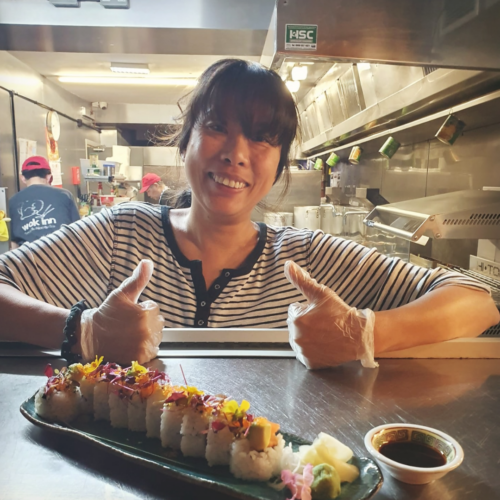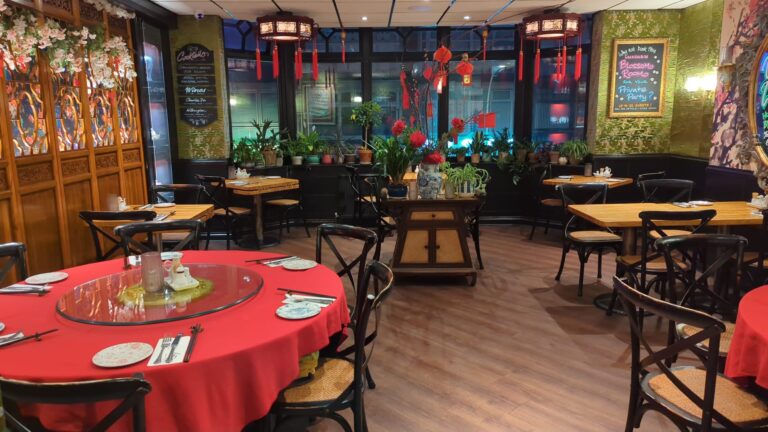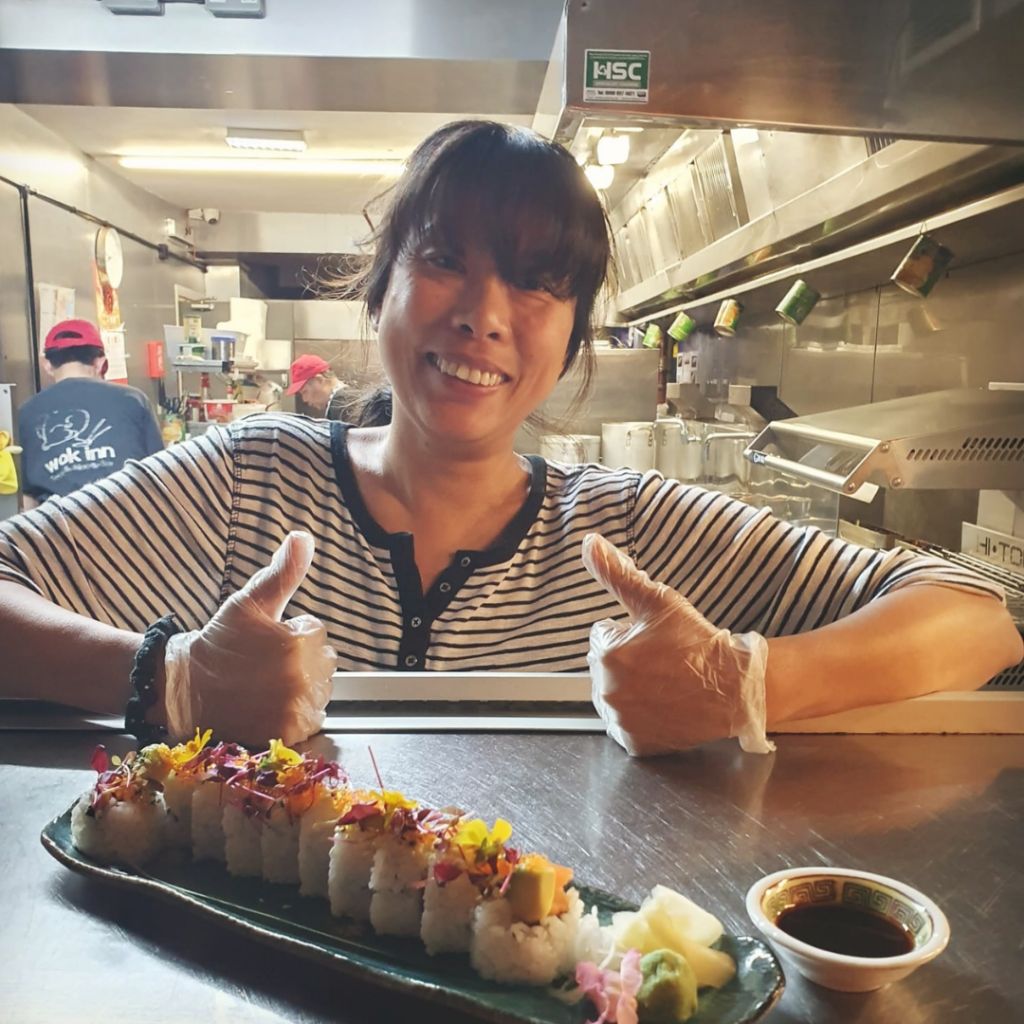ESEA Heritage Month Blog Series – Meet Pauline Lai-Thomas

ESEA Heritage Month Blog – Meet Pauline Lai-Thomas
Interview by Anna Sulan Masing
Pauline Lai-Thomas is the owner of Blackpool’s beloved restaurant Michael Wan’s Mandarin. The restaurant first opened in 1961, and Pauline took it over from her godfather, Michael Wan, in 2009. In 2108 Pauline and her husband opened a more casual, street food focused restaurant, Michael Wan’s Wok Inn, which received rave reviews, including from Jay Rayner in the Guardian.
I grew up in Hong Kong, moved to Manchester as a teenager, and eventually studied Manufacturing Engineering at Salford University. I worked at BAE Systems until 2009, before taking over my godfather’s restaurant.
I moved to the UK with my mum and two brothers in 1989, my dad was already in the UK. It was the year of the 4 June, Tenement Square incident. I was one of those very young, naive students that went to the protest and sat in the square lighting candles. My mum got very scared, thinking that I would be captured by the Chinese government. She was worried for us and our future and as my dad was already established in the UK she thought it would be good for us to leave. She told us in July, and in September we landed in Manchester airport. My dad was a gambling addict, as lots of Chinese family men were, but luckily my mother’s family were able to help out and after working in restaurants, and my mum also worked as a seamstress, they bought our chippy in Salford. My dad might not have been the best dad, but I absolutely respect the level of cooking he did for the UK industry.
I grew up in an unconventional family. My grandmother on my mother’s side, came from mainland China and were farmers. With the Cultural Revolution their estates were confiscated and so they moved to Hong Kong and bought a piece of land in Pebbles Bay. They had a cafe on the front of the house and a small holding at the back – they had pigs, geese, pigeons and chickens. I grew up with animals, and got teased at being a country bumpkin. But I remember the summers were amazing, running around on the beach. It was a very happy time in my grandma’s house, with all the fruit trees, learning to chop wood, and eventually how to ‘neck’ a chicken. My grandfather (on my mum’s side) was a bamboo master, he taught builders how to tie bamboo together to make the scaffolding on high rise blocks in Hong Kong.
Blackpool and community
Blackpool has changed a lot in the last 20 years. I remember coming to Blackpool as a child, and it was a very buzzing place. At the moment it feels like it is on the decline, it is more about day trippers, as opposed to holiday makers. Luckily it hasn’t affected us too much; those coming for the day still want a good meal, and I have noticed that those on a trip are willing to spend a bit more to have a nice meal and create a good memory.
Because we have been in Blackpool for so long we’ve had three or four generations of a family eating together and knowing this restaurant. That is my sense of community. The other night, a guy came by himself. I could tell he was a little sad and at the end of the meal I sat down with him. It turned out that his wife, at the age of 54, had passed away six weeks ago. He had some of her ashes with him and he was taking her to all the places they used to go, which included the restaurant whenever they came on holiday to Blackpool. We spoke for half an hour and I told him that any time he wanted to come back we’d set a table for two, if he wanted to also bring a photo of her.

Hospitality and future hopes
Hospitality is hard. This year has been very difficult. I am lucky that the restaurant is busy, but margins are squeezed so hard. But I do love this job. When you see the whole family get together – multiple generations – eating, laughing and chatting away. It’s so noisy and they have such a good night! When a whole restaurant feels like that, that kind of satisfaction, that you made someone happy, it might sound cheesy, but it makes it worth it.
We have a real mix working with us, including chefs from mainland China, and people from Latvia, Romania, or with Chinese, Japanese, and mixed heritage; I am Chinese and my husband is English. My dad didn’t work with me in the restaurant but he set a lot of recipes up for me, and also my uncle in Hong Kong gave me a lot of recipes. This was all about anchoring the core ingredients, working out the balance of all the sauces.
I find it very difficult that Chinese food is regarded as cheaper food, and I always argue the point that there are quality ingredients and highly skilled chefs to cook each dish perfectly. I get very angry that Chinese chefs are underappreciated. I just wish I could tell people how difficult it is to make Chinese food. I would like to see the industry regard Chinese food in the same way as they do French or modern English food.
To read another interview from the ESEA Heritage Month series, click here.

